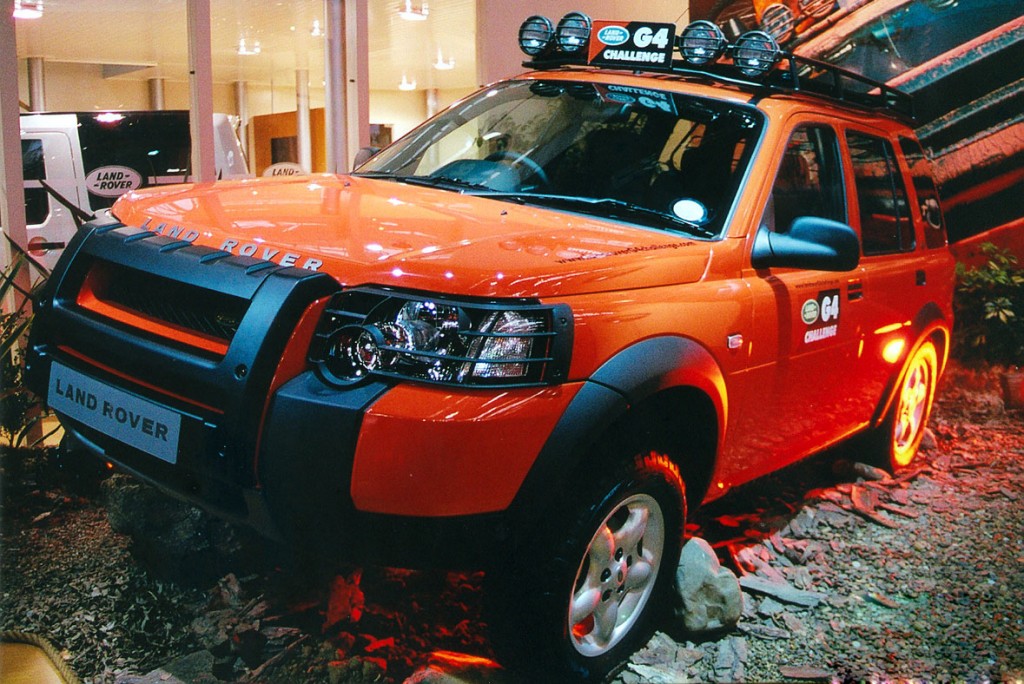Following the announcement in September that Jaguar Land Rover is to create 750 jobs at a new factory to be built as commercial property on the Staffordshire-Wolverhampton border. The company has now announced that an extra 1000 jobs are to be made available with the extensions of their existing plants in the west midlands.

This announcement comes 3 years after the company was bought by Indian manufacturer Tata at a cost of £1.7 billion, after the company was on the brink of closure.
The company’s Land Rover plant in Solihull expects an increase of the workforce by 25% with thousands of potential applicants for the new posts. This increase may in the long-term create more opportunities for small businesses in the Solihull area to make profit as they have the potential to accommodate for the new intake of workers.
Due to the decline of MG rover, there may be chances for investment opportunities in commercial properties that remain unoccupied in the midlands area. Small businesses looking to set up new premises in a built-up area, or larger firms looking to take the creation of new jobs at the Solihull Jaguar plant could see this as an opportunity to increase their customer base and therefore increase sales.
As well as this, construction on a new factory in Wolverhampton is set to commence in early 2012 and the company hopes for it to be fully operational by 2014 with the allocated 750 jobs being taken. This investment is set to be a bonus for local businesses in the Wolverhampton area, especially with a potential intake of 750 workers who are looking to accommodate themselves during their time at the plant, resulting in a further increase in jobs in the supply chain.
The news has been taken well in Wolverhampton, with posters being put up on billboards as well as adverts on media and specialist business websites.
There is an air of anticipation for Wolverhampton according to the city council’s cabinet member for economic regeneration and prosperity, Peter Bilson.
He said, “The campaign was all about the feel-good factor created by Jaguar Land Rover with the aim to attract more investment in Wolverhampton.”
He then added, “Far from simply blowing out own trumpet, what we must do in Wolverhampton is have the confidence in ourselves to promote the city as a destination that is ready, willing and able to welcome investors in our city.”
These comments suggest that potential investors can convert disused Warehousing and Industrial premises that lay scattered in the West Midlands region, into operational units where entrepreneurs can set up their ambitious plans of starting an enterprise, or current ‘big time’ investors can take their companies into new commercial property on the many Brownfield sites in Wolverhampton. Just like Jaguar Land Rover look set to do in the coming year.
Major plants located in other parts of the UK, such as Halewood in Merseyside and Solihull, are also creating a further 1000 jobs. There is the opportunity that the further development of the Jaguar Land Rover Company could potentially lead to further development of commercial property, either by extending the current premises or by purchasing new land nearby.
This is expected of a car giant that looks to diversify the manufacturer’s range of products, where different parts are constructed at different parts of the UK. This would obviously lead to an increase of the workforce that would certainly have the same effect that the new factory in Wolverhampton seems to be doing.
However, this may all seem good news, but there is still the threat of Jaguar Land Rover moving all production overseas in the long run. Tata, the Indian manufacturer that purchased the company, may look to move operations back to homeland India, just like they did with MG Rover. This move saw a decline in the midlands area and saw unemployment levels rocket. Worst of all, small businesses declined because of this and plenty of commercial properties were left boarded up and disused.
The car industry is always vulnerable to this sort of behaviour from foreign investors, as year by year the manufacturing industry in the UK declines and less and less output is being generated by British Workers. So with so many car manufacturing firms under foreign ownership, there exists the threat that may lead to the company vacating their current premises.
The increasing rate of fuel may also lead to demand falling for cars, especially for luxurious cars like Jaguars and Land Rovers.
Previous Post
Shopping Centre to Have Its Own Train